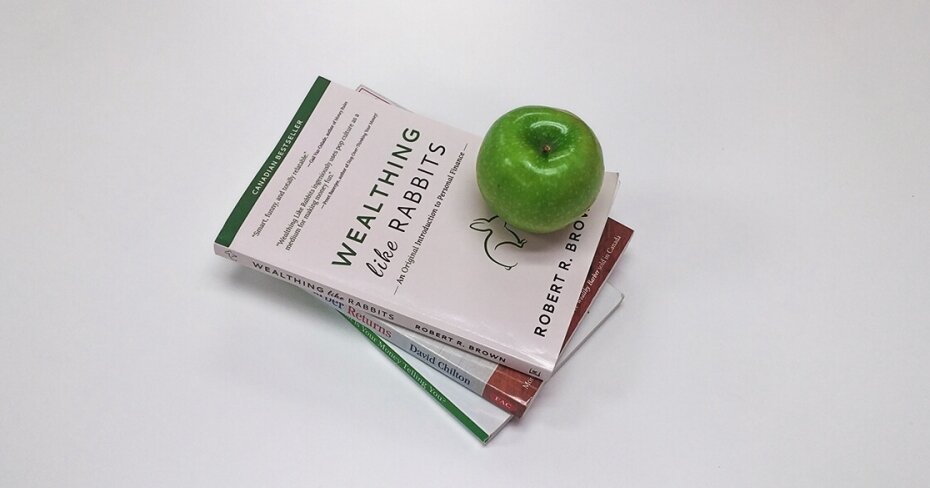LowestRates Reads: Wealthing Like Rabbits by Robert R. Brown
By: Vin Heney on November 15, 2016
We’re back with the third book in our personal finance book review series! Last week, we reviewed Kyle Prevost and Justin Bouchard’s More Money For Beer and Textbooks. This time around, Vin Heney reflects on a book that’s quickly becoming a Canadian financial classic.
Book title: Wealthing Like Rabbits
Year published: 2014
Author name & bio: Robert R. Brown is a freelance personal finance writer who lives in Ajax, Ontario with his wife Belinda, son Christopher, and daughters Jennifer and Jessica. You can find him cracking eggs of financial wisdom on Twitter at @WealthingRabbit.
What’s this book all about
This book is the personal finance primer we should all be required to read in grade 9. It’s The Wealthy Barber for a new generation: a funny, engaging classic that walks the reader through the basic concepts of financial literacy and smart long-term financial planning. It’s really the only book you need to start building a lifetime of smart money habits.
Who should read this book?
Anyone who is intimidated by finances, looking to gain control of their financial situation, and ready to become more informed and confident about the world of finance — isn’t that everyone? But mostly, I think young professionals should read it — people who are just starting to earn money and think about what the hell do to with it.
3 biggest takeaways
You probably don’t need a financial planner.
If you read this book and start implementing some of its suggestions, Brown argues that you probably don’t need a financial planner — at least not yet. As someone starting to save and invest, this was an eye opener for me. Instead of seeking — and paying for — financial advice, it probably makes more sense to read a book like Wealthing Like Rabbits and do everything in your power to stick to its sound advice. In a way, this was the kind of the push I needed to start feeling more confident about my own financial decision-making. You might not know everything about money, but if you’re reading personal finance books, you’re probably doing better than you think.Compound interest is just so goddamn powerful.
This concept is essentially the book’s namesake. Start saving as early as possible to take advantage of the awesome power of horny rabbits. Or something like that. But for reals, compound interest is a beast and there’s no excuse — not even debt repayment! — to delay starting a TFSA or an RRSP now. Even ten bucks a month. Of course, this topic also freaks me out because I wish I’d started way earlier, but c’est la vie. For lots of us, our 20s are for making short-term (read: fun! broke!) decisions, and our 30s are for scrambling to make up for it. If I could do it again, I’d adhere to Brown’s words: “Start your RRSP early. Contribute to it regularly. Leave it alone.”Small choices now = big impact later.
The book opens with two scenarios: one depicts a married couple that’s stressed, drowning in debt, and unable to stop working. It’s depressing as hell. The other depicts the same couple, at the same age, in a completely different situation. They’re comfortable, happy, debt-free, working casually (because they choose to), and generally enjoying their golden years. What’s scary is that the two couples didn’t do a whole lot differently. The latter ate out a little less, put away a little more, used the second-hand economy for certain household items, planned more economical vacations, had a budget (but no less special) wedding, etc. Sure, the hypothetical ‘smart’ couple may not have been facing the bonkers housing markets that young Vancouverites and Torontonians are today, but the main takeaways here apply in any case: be mindful of your spending, live within your means, and plan for the future you want. Follow these basic rules and your golden years should indeed be golden.
Favourite quote from book
“Never apologize for being financially responsible. Never let anyone make you feel guilty about being financially responsible. Never let someone guilt or bully you into being financially irresponsible, as in spending money when you know in your heart and in your head that you shouldn’t. Never.”


